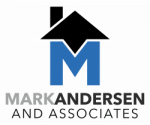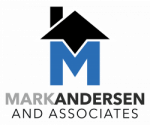Preparation and knowledge are two of the best weapons a home buyer can have. By educating yourself and planning carefully you will not only feel more confident about buying a house, but you will also discover important ways to help save you money.
What Do I Need To Know?
How Much Can I Afford?
As a first-time home buyer, before deciding which house to buy, you first need to determine how much you can afford. Our mortgage calculator takes into account your income and monthly expenses to determine how much you can borrow.
Buy or Rent?
Deciding between renting and owning is a decision that only you can make. Your individual financial situation, financial goals and your larger financial plan are all factors to take into account.
- Home Buying: Home ownership has many advantages. Building equity in your home builds your personal wealth, and the value of your house may also increase over time. However, equity and increased property value are subject to market fluctuations. As a homeowner, you may qualify for certain income tax benefits and it's worth speaking to your tax advisor to see how that could affect your personal situation. Once your mortgage payments are complete, you own your house and personalizing your house fosters a sense of pride in the home you have created.
- Renting: offers both advantages and disadvantages. You have the flexibility to move easily, do not have to worry about housing market fluctuations, and home repairs are included in your rent. However, you are not paying towards home ownership and could be subject to sudden rent increases.
Who's Involved In The Home Buying Process
Many key people are involved in the home buying process when you purchase your home.
- Your Real Estate Agent: It all starts with your real estate agent. Real estate agents will help with negotiations and paperwork if you are buying a condo or co-op. Plus, when buying a home, you have the added benefit that your agent's commission is typically paid by the seller, not you.
- Home Inspector: This is one of the important stages in the process is the home inspection – don't neglect to do this. Once you have chosen your new house, the next step is to find a qualified inspector. While home inspection is mandatory for few types of mortgages, it is recommended to be done even if it is not part of the requirement. Visit ASHI.org, or the American Society of Home Inspectors to learn more.
- Escrow Officer: Aside from the certified checks and proof of insurance, the closing agent or attorney will represent your interests and ensure that you understand your contract and your mortgage.
Down Payment & Costs to Consider
Down Payment: The down payment is part of the purchase price of a property that the buyer pays, and is not included in the loan amount.
Closing Costs: Here are some of the common closing costs you might need to pay:
- Mortgage lender's Fees
- Loan origination fee
- Commitment fee
- Loan discount points (if applicable)
- Appraisal fee
- Credit report fee
- Prepayments
- Interest from the date of the closing to the date of the first monthly payment
- Mortgage Insurance Premium (if applicable)
- Flood Insurance Premium (if applicable)
- Hazard Insurance Premium (or receipt of payment)
- Prorated Property Taxes
- Additional Fees
- Title charges
- Recording and transfer fees
- Escrow fees
- Termite inspection, professional home inspection and survey fees (if applicable)
Applying For The Right Mortgage
Experiencing the mortgage application process for the first time can seem a bit daunting, but as long as you're prepared with the right documents, our process will guide you smoothly through the front door of your new home. We can help prepare you with advice and checklists that will keep you organized. There are three main steps during the mortgage loan process: application, evaluation (or underwriting) and closing.
- Application: If you are applying for a Home Loan, you will complete the loan application and pay an origination fee, if required.
- Evaluation:The decision to grant a mortgage includes factors such as your income-to-expense ratios, credit history, assets, appraised value of the home, and other information. Don't be discouraged if your application does not meet all of the standards. Underwriters are trained in weighing compensating factors.Lenders have a method of determining if you qualify for a mortgage. A certain percentage of your total gross monthly income (your income before taxes) is allowed to pay for your total housing debt. These percentages are often referred to as ratios.Your housing debt consists of the cost of principal and interest to repay the mortgage loan, the real estate taxes, mortgage insurance (MI), flood insurance if required, homeowner's insurance, and home owner association fees, or other household related expenses as they may apply. This is also known as PITI - Principal, Interest, Taxes and Insurance.The lender allows you to apply a certain percentage of your total gross monthly income for total debts. There is a limit to the amount of gross income that you can apply to these total debts, which are also known as recurring debts. A recurring debt is any payment you make on an ongoing basis and includes all loans (even loans in deferment), credit card payments, installment loans, auto loans, education loans, alimony, and other types of debt. Generally, your total monthly recurring debt plus total monthly housing debt can be no more than 43% of your total gross monthly income for most mortgage loans. This percentage is known as your debt-to-income ratio.The lender evaluates your application and supporting documentation and makes a decision on the loan. If your loan is approved, the lender may issue a commitment or approval letter. This letter provides the details of the transaction, including the mortgage amount, interest rate, points, and other important information along with conditions that will need to be satisfied to obtain the loan.If the loan is not approved, the lender provides a written explanation for not approving the loan, and you can begin corrective steps. The lender may also offer you a lower loan amount, changed terms, or changed product, which is called a counteroffer.
- Closing:The closing, or settlement, is the final step in legally transferring home ownership from the seller to the buyer.Either at a scheduled meeting or through an escrow agent, this step includes the lender sending funds to the attorney or closing agent and you signing the closing documents. The seller is then paid and you receive the title to the home.Consulting a real estate attorney is in your best interest to avoid any unnecessary confusion during closing.
Choosing The Right Mortgage For You
As a first-time home buyer, looking for an affordable, flexible mortgage can be a challenging process. We offer different types of mortgages to best suit your needs. (Click to learn more)
Financial Calculators
We have other comprehensive mortgage calculators to guide your mortgage decisions.


